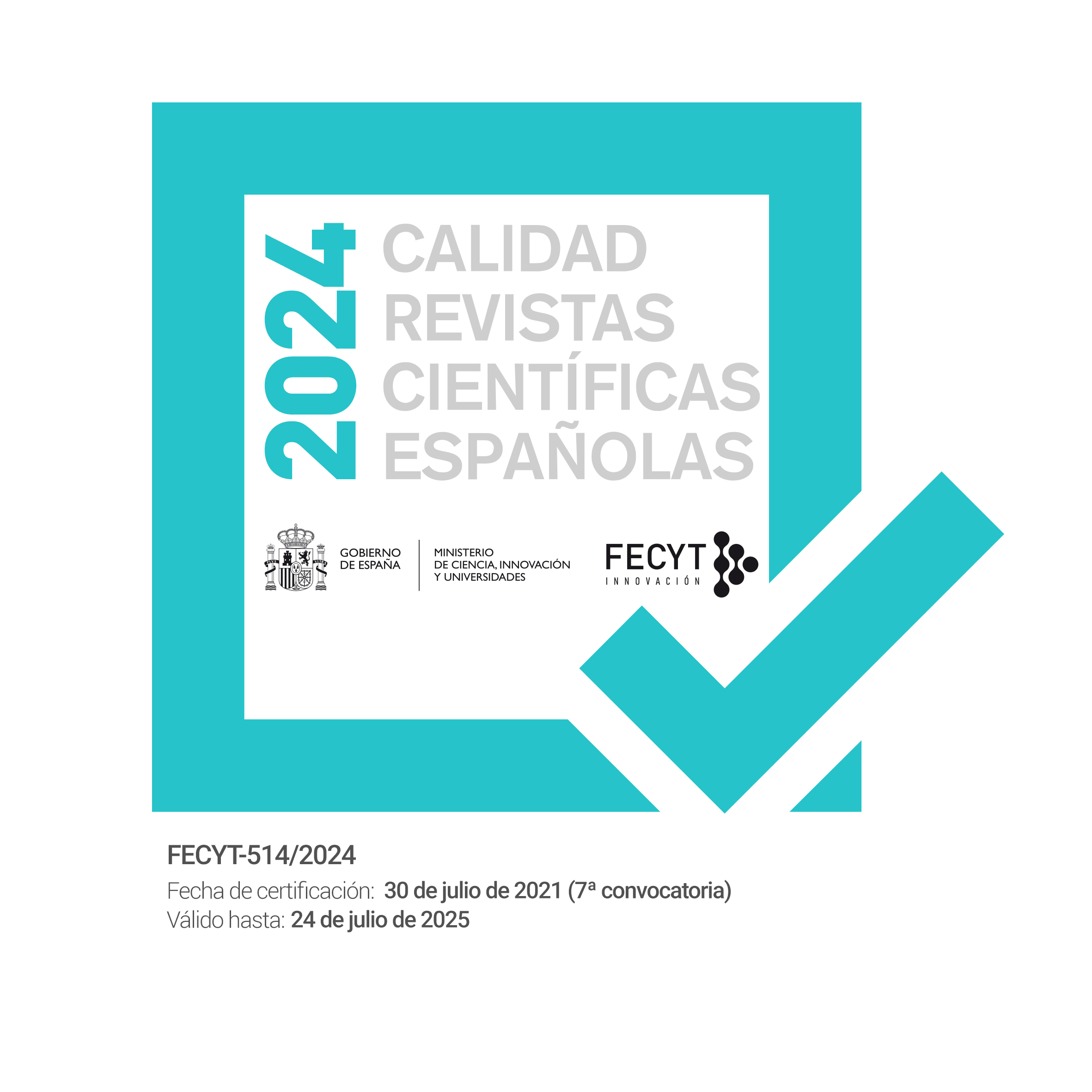Human Waste Down the Sewer: The Racist Abnormalities of US Life in Richard Wright's The Man Who Lived Underground
DOI:
https://doi.org/10.12795/REN.2023.i27.14Keywords:
Richard Wright, The Man Who Lived Underground, Waste Theory, racism, wastification, police brutalityAbstract
This article examines the mechanisms that white supremacists apply to conceive of Black people as human waste, and the strategies to counteract them, in Richard Wright’s 2021 posthumous work The Man Who Lived Underground. The novel narrates the story of Fred Daniels, a young African American man who suffers the harshest aspects of Black life in mid-twentieth century New York City. Leaving work on a Saturday evening, Daniels is arrested on the street by three white police officers, and severely brutalized at the police station. Falsely accused of murder, and forcefully transformed into human waste, the protagonist manages to escape to the sewer system of the Big Apple, undergoing a surreal experience amid the filth and darkness of the tunnels that makes him ponder on the abnormalities of aboveground human relations.
Downloads
References
AGAMBEN, Giorgio. Homo Sacer: Sovereign Power and Bare Life. Translated by Daniel Heller-Roazen, Stanford University Press, 1998.
BALDWIN, James. “The Fire Next Time.” Collected Essays, edited by Toni Morrison, The Library of America, 1998, pp. 291–347.
---. Notes of a Native Son. 1955, Beacon Press, 2012.
BAUMAN, Zygmunt. Wasted Lives: Modernity and its Outcasts. 2004, Polity Press, 2021.
DOUGLAS, Mary. Purity and Danger: An Analysis of Concepts of Pollution and Taboo. 1966, Praeger Publishers, 1970.
FABRE, Michel. “Richard Wright: The Man Who Lived Underground.” Studies in the Novel, vol 3, no. 2, 1971, pp. 165–179.
FERNÁNDEZ FERNÁNDEZ, Martín. “A Necropolitical Approach to Waste Theory.” Toxic Tales: Narratives of Waste in Postindustrial North America, special issue of Revista Canaria de Estudios Ingleses, vol. 86, 2023, pp. 147–156, https://doi.org/10.25145/j.recaesin.2023.86.09.
GINES, Kathryn T. “‘The Man Who Lived Underground’: Jean-Paul Sartre And the Philosophical Legacy of Richard Wright.” Sartre Studies International, vol. 17, no. 2, 2011, pp. 42–59. JSTOR, http://www.jstor.org/stable/42705172. Accessed 29 May 2023.
KRISTEVA, Julia. Powers of Horror: An Essay on Abjection. Translated by Leon S. Roudiez. Columbia University Press, 1982.
LASSITER, Matthew D. “De Jure/De Facto Segregation: The Long Shadow of a National Myth.” The Myth of Southern Exceptionalism, edited by Matthew D. Lassiter and Joseph Crespino, Oxford University Press, 2010, pp. 25–48.
LEVINAS, Emmanuel. Alterity and Transcendence. Translated by Michael B. Smith, The Athlone Press, 1999.
LITERARY CLASSICS of the United States, Inc. “Note on the Texts.” The Man Who Lived Underground, by Richard Wright, Library of America, 2021.
MARCUSE, Herbert. One-Dimensional Man: Studies in the Ideology of Advanced Industrial Society. 1964, Beacon Press, 1966.
MAYBERRY, Susan Neal. “Symbols in the Sewer: A Symbolic Renunciation of Symbols in Richard Wrights ‘The Man Who Lived Underground.’” South Atlantic Review, vol. 54, no. 1, 1989, pp. 71–83. JSTOR, https://doi.org/10.2307/3200066. Accessed 15 May 2023.
MBEMBE, Achille. Critique of Black Reason. Translated by Laurent Dubois, Duke University Press, 2017.
MCNALLIE, Robin. “Richard Wright’s Allegory of the Cave: ‘The Man Who Lived Underground.’” South Atlantic Bulletin, vol. 42, no. 2, 1977, pp. 76–84. JSTOR, https://doi.org/10.2307/3199067. Accessed 15 May 2023.
MORRISON, Susan Signe. The Literature of Waste: Material Ecopoetics and Ethical Matter. Palgrave Macmillan, 2015.
PERRY, Imani. “The Bleak Prescience of Richard Wright.” The Atlantic, May 7, 2021, theatlantic.com/magazine/archive/2021/06/richard-wright-man-who-lived-underground/618705/?utm_source=copy-link&utm_medium=social&utm_campaign=share. Accessed 15 May 2023.
RIDENOUR, Ronald. “‘The Man Who Lived Underground’: A Critique.” Phylon (1960-), vol. 31, no. 1, 1970, pp. 54–57. JSTOR, https://doi.org/10.2307/273873. Accessed 29 May 2023.
ROOT, Damon. “When the ‘Native Son’ Became ‘The Man Who Lived Underground.’” Reason, vol. 53, no. 5, 2021, pp. 56–60.
SIMAL-GONZÁLEZ, Begoña. “‘The waste of the empire’: Neocolonialism and environmental justice in Merlinda Bobis’s ‘The Long Siesta as a Language Primer.’” Journal of Postcolonial Writing, vol. 55, no. 2, 2019, pp. 209–222.
THEOHARIS, Jeanne. A More Beautiful and Terrible History: The Uses and Misuses of Civil Rights History. Beacon Press, 2018.
WEHELIYE, Alexander G. Habeas Viscus: Racializing Assemblages, Biopolitics, and Black Feminist Theories of the Human. Duke University Press, 2014.
WILLIAMS, Chad. “The Black Soldier.” Four Hundred Souls: A Community History of African America, 1619-2019, edited by Ibram X. Kendi and Keisha N. Blain, The Bodley Head, 2021, pp. 307–311.
WRIGHT, Malcolm. “Afterword.” The Man Who Lived Underground, by Richard Wright, Library of America, 2021, pp. 213–219.
WRIGHT, Richard. “Introduction.” Black Metropolis: A Study of Negro Life in a Northern City, edited by St. Clair Drake and Horace R. Cayton, 1945, The University of Chicago Press, 1993, pp. xvii–xxxiv.
---. “Memories of My Grandmother.” The Man Who Lived Underground, by Wright, Library of America, 2021, pp. 161–211.
---. The Man Who Lived Underground. Library of America, 2021.
ZIMRING, Carl A. Clean and White: A History of Environmental Racism in the United States. New York University Press, 2015.















